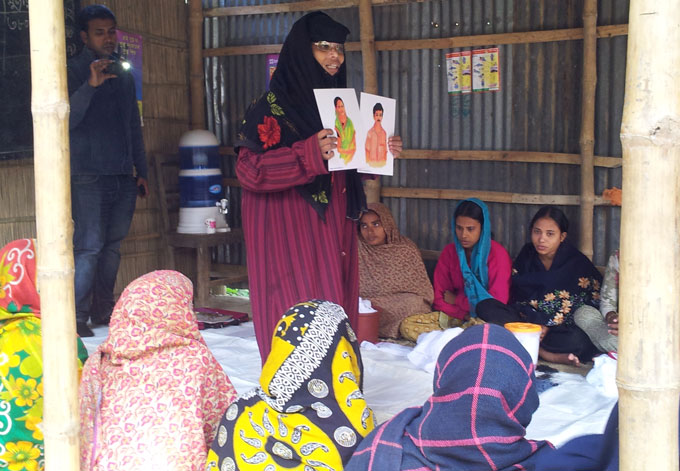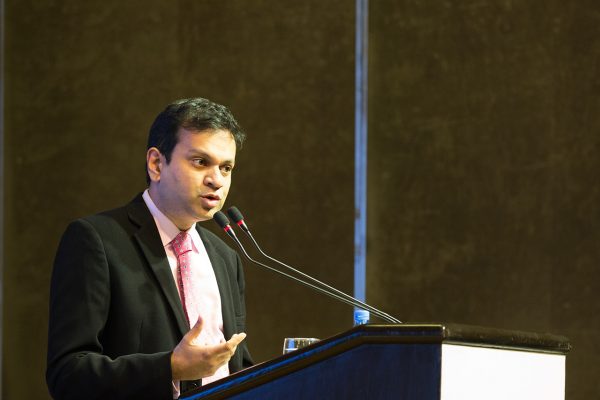Reading Time: 3 minutes
The fashion and garments industry of Bangladesh, employing the largest labour force, has become a national pride. A huge fraction of the labour force is women, which has brought about a revolutionary change in the concept of women’s empowerment and economic independence. But a few of the recent garments and fashion house fire incidents have changed this whole notion of national pride into death traps.
The fashion and garments industry of Bangladesh, employing the largest labour force, has become a national pride. A huge fraction of the labour force is women, which has brought about a revolutionary change in the concept of women’s empowerment and economic independence. But a few of the recent garments and fashion house fire incidents have changed this whole notion of national pride into death traps.
Lives have been lost and flouting of safety norms is increasing. Employees losing trust has become a threat for this sector. In these vulnerable conditions, Aarong has embarked on an initiative to connect its artisans with an integrated array of development services.
Aarong, identified as a well known fashion house in the country, has stepped beyond its popularity and depicted itself to be more than just a BRAC social enterprise. Aarong artisans are now learning to read and about the state laws that apply to their lives, and much more than sitting in their own workplace.
Aarong was established in 1978 with the mission of poverty alleviation. Creating market linkages for rural artisans and thus reviving and promoting the skills and craft of underprivileged women seemed to be a promising solution. It ensured economic empowerment of these disadvantaged artisans but still there were means left to ensure productive livelihood.
Aarong realized the need for a holistic approach towards its artisans to improve their livelihood by giving them scope to fulfill their basic rights such as education, health, legal aids and right to information alongside economic empowerment. Termed as the “Artisan Development Initiative,” Aarong has created a clever and innovative integrated package with linkages to BRAC’s core development programs.
Sub-centres, the work place of Aarong artisans, have been turned into service centres where the artisans will provide and receive services from now on. Services provided include access to core programmes of BRAC such as BRAC’s health, nutrition and population programme; community empowerment programme; human rights and legal aid services and others.
Everyday at least half an hour off from production time is reserved to provide these services to the artisans. The package primarily includes services like education, health classes and check-ups, human rights and legal education classes, inclusion in community meetings, water and sanitation facilities for the artisans.
The programmes currently involved have their own scheduled days to run its operations with the artisans. For example, in a particular sub-centre the community empowerment programme runs its program in the second Monday of the month, for one hour, whereas Human Rights and Legal Education classes are held one particular day each week to complete the 12 class based course. The BRAC Education Programme runs its program each week. Sub-centres work as a platform to disseminate all these services to the artisans and each sub-centre has an in-charge who monitors all these programmes and reports to a cluster-in-charge. The cluster-in-charge is responsible for monitoring a whole region and coordinates with the in-charge of the core development programmes to ensure the proper integration of the initiative.
The project has been in pilot phase, running at a small scale in Raajbaari and Kurigram for 5 months. Scaling-up will begin during the month of April.
A recent field visit to Raajbaari has led me to experience the excitement of the artisans with this new addition and phase of their life. Most of the women never expected to learn to read at this age. ‘I can read my son’s letters now’ – says a mother whose son works in Malaysia.
The change is visible when the artisans talk about the inheritance law for women without any confusion, a situation which was totally different even a few months back. A young artisan with her confident voice says- ‘nobody can cheat me anymore’.
They now have information about the health centres in their residing areas and the know-how to handle a situation when a pregnant woman is in labour. They are aware of their rights as a citizen of Bangladesh.
All of this together can be hoped to create a bigger impact both at individual and community level. The fusion of social enterprise and core development programmes is a step towards holistic development.







